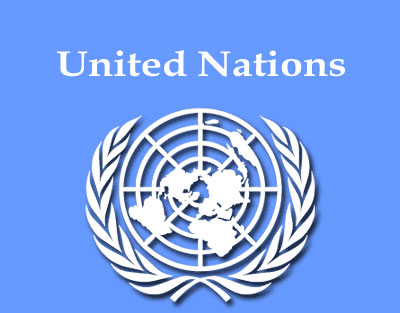The UN on Tuesday expressed concerns about the hiking of work permit fees for foreigners and a recent South Sudan Government’s order giving expatriates a month to obtain work permits.
Ian Ridley, head of the United Nations Office for the Coordination of Humanitarian Affairs (UNOCHA) in South Sudan, said the new work permit fees and other fees enacted in September will make it even more costly for aid organisations, both national and international, to deliver much-needed aid to people in need.
“OCHA affirms that humanitarian organizations working in South Sudan must uphold the laws of the country; however the uneven and sometimes unpredictable implementation of the law sometimes presents challenges to NGOs and other partners,” Ridley told Xinhua.
South Sudan’s relief agency said on Monday that it identified more than 1,000 illegal expatriates working with humanitarian organizations in the east African nation, and has given them a one-month ultimatum to acquire work permits or face the law.
A letter, addressed to UNOCHA dated Nov. 2 by the South Sudan Relief and Rehabilitation Commission, made public the names of the individuals and the organizations they work for, and ordered them to obtain work permits by Dec. 4.
In March, South Sudan increased work permit fees for foreign workers from 100 U.S. dollars to 10,000 dollars for professional/business class, 2,000 dollars for blue collar jobs and 1,000 dollars for casual laborers.
The South Sudanese finance ministry said at the time that the hiked fee would raise vital revenue for the cash-strapped government to fund its activities.
But the fee hike prompted an outcry from humanitarian agencies who described it as a way of restricting work of foreign aid workers in the war-torn nation, forcing the government to suspend the policy the following month.
The Ministry of Labour and Public Service late October announced the revised annual work permit rates for foreigners ranging from 500 to 4,000 dollars.
Under the new fee structure, consultants and managers will pay 4,000 dollars, professionals charged 3,000 dollars and technicians 2,000 dollars.
The directive does not affect members of the diplomatic corps.
Skilled workers will pay 1,000 dollars and casual laborers will be charged 500 dollars, and defaulters will be charged an extra 200 dollars in fines.
OCHA condemned making public names of aid workers who are alleged to be without work permits, adding that preliminary data suggest that names on the list include former staff, visitors, and staff who have in fact applied for or possess a permit.
Ridley said the humanitarian community in South Sudan would cooperate with the government to ensure all staff are in possession of the required work permit.
“Information about NGO staff members is confidential and should not be published without their consent.
“We therefore urge the RRC to remove any such information from public domain,” Ridley added.



Leave a Reply